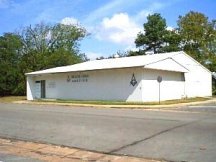"Jones is a nut!" remarked the New Brother to the Old Tiler. "I went with him yesterday to look up an applicant for membership. I didn't know much about such things, so I let him do the talking. And the questions that man asked!"
"What did he want to know?"
"First, he wanted to know what kind of job the applicant held, how long he had been there, where he had worked before, was he satisfied, did he like his boss, how much he made and whether he saved any of it or spent it all!"
"Quite right, too," commented the Old Tiler.
"He wanted to know if the applicant was a solid citizen, able to pay his dues and unlikely to become a charge on the lodge. Chap who holds a job today and leaves it tomorrow for another is apt to be an applicant for charity."
"But that's one of the things a lodge is for- charity," said the New Brother.
"To its members who are in need, yes," answered the Old Tiler. "But no lodge willingly takes in members who may need charity. Masonry is not a crutch for the indigent. It is a staff for those who go lame in life's, journey, but when a man starts out lame he has to get crutches from some other institution."
"He asked, 'Why do you want to become a Mason?' that seemed to me an impertinence. A man's reasons for wanting to join Masonry are no business of ours."
"Is that so!" answered the Old Tiler. "Son, you know so many things that are not so! I have been on the petitions of a great many men and that is always my first question. I have heard many answers. Some men want to join because their fathers were Masons. Some think it will help them in life. Some frankly say they want to make friends so they can be successful. Others think that Masonry will help them in their religion. Still others want to be Masons because they want to belong to a secret society."
"But why is that our business?"
"A man who wants to join a fraternity because his father belonged, is good material," answered the Old Tiler. "He wants to imitate his father. As his father was a Mason it is probable that he was a good man. If the applicant desires to imitate a good man, and thinks we can help him, his motives are worthy. The man who wants to become a Mason to stiffen his religious belief is not a good candidate. Masonry demands no religion of its applicants, merely a belief in Deity. A man with religious convictions which are slipping and looks for something to prop them up, should go elsewhere than the Masonic Altar. Asking nothing but a belief in God, we have a right to demand that that belief be strong, well-grounded, unshakable, and beyond question.
"The man who says he wants to join the Masonic order because he wants to belong to a secret society doesn't get asked any more questions! He is through right there. Masonry is no haven for curiosity seekers. The chap who thinks Masonry will make him friends who will help him in his business gets nowhere with a good committee. Masonry is not a business club. Imagine a man going to a minister and saying: 'I want to join your church so I can sell lawn mowers to your members.' Would the minister want him? Masonry is not a church, but it is holy to Masons. Masonry is a bright and shining light in a man's heart which must not be sullies by profane motives. To attempt to use Masonry for business is like using the Bible to sit on- diverting from the proper purpose that which should be held sacred.
"The man who answers that question by saying, 'I have always heard of Masons as men who receive help in being good men; I would like to have the privilege of becoming a member,' is approaching the matter in the right spirit. Masonry doesn't hunt the man, the man must hunt the lodge. And he must hunt with a pure motive, or cannot join any good lodge, with a good committee. The motive is vitally important. We want to know if he can afford $50 for a fee and $5 a year for dues. If they have to rob their children to join we have no use for them. We want to know if a man stands well with his fellows outside the lodge; if so he is apt to stand well with them inside. If he has few friends and those of doubtful character, the chances are he is not good timber for us. "Masonry is what we make it. Every good man who comes into a lodge helps the fraternity. Every insincere man, every scoffer, every dishonest man who gets into lodge, injures the fraternity. Masonry can accomplish good in the hearts of men only as it is better than they are. When it becomes less good than the average man, the average man will not want to join, and Masonry's power will be gone.
"The price of liberty, so we are told, is eternal vigilance. The price of quality in a lodge is eternal care by the investigation committee. An important job, it should be approached with the idea that the future of the lodge and of Masonry to some extent rests on the man making the investigation.
"Hm. Thanks. See you later.
"You're welcome- but what is your hurry?"
"Got to find Jones and tell him I'm the nut. Then ask the Master to let me go with him again and see if I can't see something else in his questions besides foolishness!" answered the New Brother.
See You Next Month




